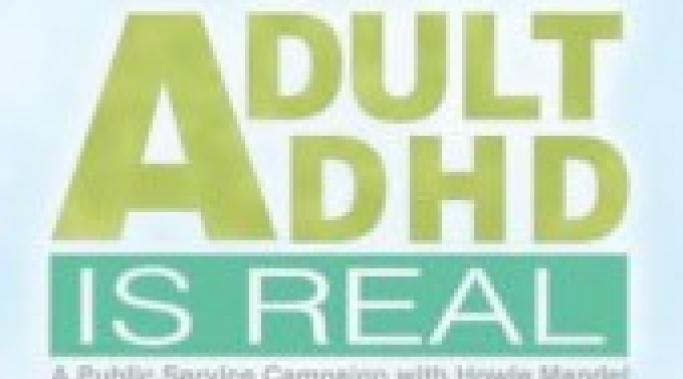Last month I wrote a post about finding the right work to fit with ADHD symptoms. One reader, Jeff, wrote in to state that he found journalism to be a fantastic career for him because there is "lots of variety [and journalism] allows for spontaneous changes in direction throughout the day."
I like Jeff's thinking on this issue because as the DSM IV states, I "often [have] trouble keeping attention on tasks or play activities." So, like Jeff, I prefer a lot of variety in my day as well as some spontaneity.
Living with Adult ADHD
Recently, I’ve noticed a pattern in my clients that I call the “tipping point”. The “tipping point” is basically a time in people’s lives when, for various reasons, the strategies they have been using to compensate for their ADHD challenges no longer seem to be working. This “tipping point” is often experienced along with feelings of overwhelm and chaos. Up until a “tipping point,” people have been able to balance known or unknown challenges with ADHD with strategies they may not have even realized they were using. Up until the “tipping point”, they had been able to adapt and cope well with their symptoms, even going as far as being under the radar for an official diagnosis of ADHD (in other words their symptoms were not interfering with their functioning). But for some reason a life change – it could be a job promotion, relationship change, a school change, or any myriad of different things – renders the current strategies ineffective and over time there is a sense that things are no longer “going well” and in fact, life seems to be falling apart in a big way.
Admittedly, I'm late. Again. Instead of making an excuse, let's just say that at 40, I'm more aware of my inability to accurately gauge time. It is a symptom of my ADHD, but it is not an excuse. As a kid, I didn't know that I had ADHD, but now that I am aware, a number of events from childhood forward make a lot of sense. I'll share an example and what I have learned as well as how I continue to struggle with timeliness.
According to Sarah-Jayne Bass, there are a number of barriers to employment faced by people with ADHD including communication barriers and impaired social interactions. While there are numerous individuals with ADHD who have found ways to be successful on the job, there are also many individuals with ADHD who are unemployed, underemployed, or who are what I call "unhappily serially-employed." I place myself in the latter category.
Here we will address the ranks of the unhappily employed, underemployed, and "serially-employed" ADHD worker and provide a few ideas regarding "success" in the workplace.
When you’re living with ADHD (in yourself or a loved one), every day can feel like a struggle. And when you find something that works to make everyday life run just a little bit smoother, that one tip can be a lifesaver! And if that tip was shared with you by someone else, you feel eternally grateful for their time and generosity. Over the next two blog posts, I’m going to talk about 3 ways you can pay it forward, and bring a little bit of happiness to the lives of others with ADHD.
I have been so excited about writing for HealthyPlace that I have had trouble focusing on exactly where to begin. Ha! Can you imagine a person with ADHD not being focused? Of course you can! It's a hallmark of the disorder. What may be harder to imagine is a person with ADHD who is so focused that it is, as Dr. Larry Silver notes in an ADDitude article, "...difficult for anyone to 'reach' and interact with a person."
Hi! I’m Andrew Foell, barely 40 and diagnosed with adult ADHD in my early thirties. I prefer to be called Drew. Somewhat characteristic of many people with adult ADHD, I refer to myself as a “jack of all trades and master of some.” That segues into some of my credentials: I earned a Master of Arts in Instruction in the late nineties and have taught secondary English and developmental English—a supplementary class for students with ADHD and other diagnoses. Currently, I work as a literacy tutor, again serving similar populations. I am a member of our district-wide PBIS (positive behavior interventions and supports) implementation team, and I believe strongly in early intervention. Research and writing are personal passions as are mental health and mental health advocacy.
“Medication levels the neurobiological playing field.” Biederman, J., & Spencer, T. (2002)
After receiving a diagnosis of adult ADHD, the most commonly asked questions people have are around ADHD medications. Despite the fact that we have been using the same psycho stimulants to treat ADHD for over 60 years, and have studied them over and over again for effectiveness, short term and long term side effects and contraindications, doubt remains.
In order to help provide some answers, dispel some myths and help people stay at choice around their ADHD treatment options, here is a synopsis on three of the top questions and their answers around ADHD medication.
For people with ADHD, a familiar strategy to get things done is to be very clear about their goals, break them down into smaller pieces, and complete those smaller pieces in order to carry out the goal. Weekly we plan for what needs to be accomplished. Daily we check and check off our to do lists for what we accomplish and breathe a sigh of relief when we can look back and see that indeed we have moved forward and made progress. Completing these steps helps create the structure and organization that minimizes the common challenges of disorganization, distraction, procrastination, etc.
This path of a goal, whether it’s a goal set for your personal, professional or academic life, is generally seen as having four steps: 1) assess the situation, 2) set goals for how you want it to be, 3) take steps to achieve the goals, and 4) achieve the goals (completion).
After Step 4, most people return to Step 1 armed with the question: “OK, what’s next?”
The impact on siblings of children with ADHD is not often talked about, yet it is an important discussion to have in order to create healthy and functioning families. Studies show that siblings of children with ADHD experience the same disruption, chaos, unpredictability and exhaustion as their parents. At times, they may even feel victimized, unprotected and powerless, particularly when faced with expectations to “take care” of their siblings.
A healthy family considers everyone’s needs. Here are some tips for parents to help minimize the effect of their ADHD child on other siblings in the family:









